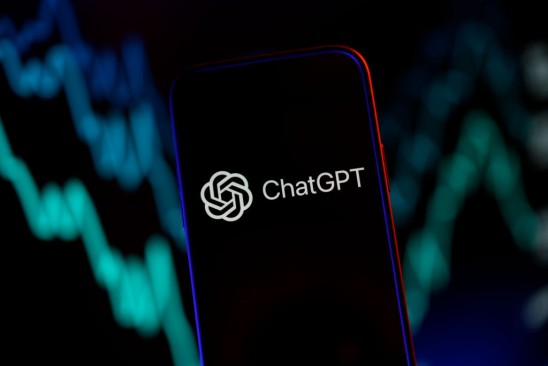
by Matt Marshall -- @mmarshall venturebeat -- OpenAI’s announcement last night apparently resolved the saga that has beset it for the last five days: It is bringing back Sam Altman as CEO, and it has agreed on three initial board members – and more is to come. However, as more details emerge from sources about what set off the chaos at the company in the first place, it’s clear the company needs to shore up a trust issue that may potentially bedevil Altman as a result of his recent actions at the company.
It’s also not clear how it intends to clean up remaining thorny governance issues, including its board structure and mandate, that have become confusing and even contradictory. For enterprise decision makers, who are watching this saga, and wondering what this all means to them, and about the credibility of OpenAI going forward, it’s worth looking at the details of how we got here. After doing so, here’s where I’ve come out: The outcome, at least as it looks right now, heralds OpenAI’s continued shift toward a more aggressive stance as a product-oriented business. I predict that OpenAI’s position as a serious contender in providing full-service AI products for enterprises, a role that demands trust and optimal safety, may diminish. However, its language models, specifically ChatGPT and GPT-4, will likely remain highly popular among developers and continue to be used as APIs in a wide range of AI products.
More on that in a second, but first a look at the trust factor that hangs over the company, and how it needs to be dealt with. The good news is that the company has made strong headway by appointing some very credible initial board members, Bret Taylor and Lawrence Summers, and putting some strong guardrails in place. The outgoing board has insisted that an investigation be made into Altman’s leadership, and has blocked Altman and his co-founder Greg Brockman’s return to the board, and have insisted that new board members be strong enough to be able to stand up to Altman, according to the New York Times.

by Matt Marshall -- venturebeat.com -- In a masterful move exemplifying urgent and instinctive leadership, Microsoft CEO Satya Nadella, personally jumped into the chaos happening over the weekend at the leading generative AI company, OpenAI, and came out with as much as he possibly could have. Working for hours over the weekend, he negotiated a deal that brings Sam Altman, the ousted OpenAI CEO, over to head up a new subsidiary within Microsoft focused on AI innovation – a group that will also include Open AI co-founder Greg Brockman and other departing employees who supported Altman’s strategy.
On the face of it, this is a huge win for Microsoft, because it gets Altman’s growth DNA in the hottest area of tech: generative AI. Altman and Brockman represented the hard-charging, growth minded product side of OpenAI’s business. OpenAI was raising money at terms that value the company at between $80 and $90 billion, meaning Microsoft would have had to pay tens, if not hundreds, of billions of dollars to acquire OpenAI if it ever wanted to. Now, Microsoft is getting OpenAI’s main assets (its brains), and the OpenAI models will probably follow – all presumably at a massive discount. What a bargain, right? That’s what the stock market thought. Microsoft’s shares jumped by more than 1 percent on the opening of trading Monday morning, valuing the giant at a record $2.78 trillion. Well, let’s see. Until this morning, it looked like OpenAI would remain a functioning company, hell-bent on pursuing safe GenAI. That would have presented a stable picture, with Microsoft owning a meaningful stake in that company too.
But suddenly everything was in flux again as of Monday morning. The vast majority of remaining Open AI employees have reportedly supported a letter sent early this morning to that company’s board that they may quit unless the board resigns and reinstates Altman and Brockman. If the remaining board decides to resign, it’s possible that Altman and Brockman may return and lead OpenAI to even more aggressive growth than ever without the constraints of the safety-focused board. That could still be very good for Microsoft, given that it is the largest investor, and participates in any profits that OpenAI throws off. It’s also true that OpenAI’s strong growth and speed in the area of generative AI may create some tension with Microsoft, which is also seeking to be a leader in the area of enterprise generative AI. However, tension isn’t all that bad, and the existing partnership still gives Microsoft a lot of access to technology and know-how. This would certainly give Microsoft a leg-up in the competition against Amazon AWS and Google in providing powerful AI-infused cloud technology solutions to enterprise companies.

Story by Berber Jin - wsj.com -- SAN FRANCISCO—Two days after Sam Altman was ousted from OpenAI, he was back at the company’s office, trying to negotiate his return. The former chief executive officer entered with a guest badge on Sunday and posted on X: “first and last time i ever wear one of these.” The leadership of the company that created the hit AI chatbot ChatGPT remained unclear Sunday, as investors and many employees pushed over the weekend to restore Altman. He has been engineering a countercoup to retake control of one of Silicon Valley’s most valuable and high-profile startups. Altman’s camp has succeeded in bringing the board that fired him to the negotiating table and proposed a series of high-profile tech executives to potentially helm a new board that would be more aligned to his business vision. Names floated include Bret Taylor, the former co-chief executive of Salesforce; Brian Chesky, the chief executive of Airbnb who has been a longtime confidant of Altman’s; and Laurene Powell Jobs, founder and president of Emerson Collective, people familiar with the matter said.
Sheryl Sandberg, the former chief operating officer of Meta Platforms, also came up. Bloomberg previously reported that Taylor is being considered. Microsoft’s executives have also pushed for oversight in a new corporate structure, including a potential board observer seat that would give it more visibility into the company’s governance. Any greater role on the board could be a regulatory concern; Microsoft has kept its ownership stake in OpenAI below the 50% mark to avoid raising the attention of regulators. OpenAI CEO Sam Altman sacked by company over lack of 'candid communications' Among all the investors, Microsoft might be the most deeply intertwined in the fate of OpenAI, and the startup’s turmoil has been a liability. Beyond being OpenAI’s largest backer, Microsoft has reoriented its business around the startup’s AI software. Shares in Microsoft fell after the news of Altman’s firing. The abrupt shake-up at OpenAI turns on one of the oldest tales in Silicon Valley: a breakup between a founder and his board. But in this case it was a very particular kind of founder—the face of Silicon Valley’s artificial-intelligence revolution—and a very particular kind of board, which was tasked with making social good a priority over profit. The rupture threatens the future of the company and the billions of dollars investors had put into it.

The Palestinian leadership in Ramallah, under President Mahmoud Abbas, persists with a strategy of prudent neutrality, closely observing the ongoing conflict between Hamas and Israel since October 7. Abbas has not signaled any intention to engage with Hamas or entertain the notion of stepping down to make way for new leadership. The trust deficit between Abbas and Hamas has deepened, with Abbas critiquing Hamas for the precarious situation of Gaza's people and the Palestinian cause, exacerbated by the global view of Hamas as a terror group, complicating potential collaboration. Conversely, Hamas criticizes Abbas for his perceived inaction against Israeli measures and American policies as the Gaza conflict persists.
Abbas's low-profile stance, cordial Western relations, and adherence to international norms, he argues, are preserving Palestinian nationalism. In private meetings with US Secretary of State Antony Blinken, the Palestinian leadership received commendation for maintaining calm in the West Bank and averting a third intifada, deemed crucial by Palestinian officials in light of the current Israeli sentiment. Abbas has instructed his security apparatus to ensure the West Bank does not mirror Gaza's turmoil. Despite heightened tensions and provocations from Israeli settlers and hardline politicians, Abbas's patience is deemed necessary, albeit politically contentious. The Americans, post-conflict, have pledged to support a two-state resolution encompassing the West Bank, parts of Jerusalem, and Gaza. They have reassured Abbas of maintaining the PLO's central role in Gaza's future, highlighting its exclusive representation of the Palestinian people.
Khazen History


Historical Feature:
Churches and Monasteries of the Khazen family

St. Anthony of Padua Church in Ballouneh
Mar Abda Church in Bakaatit Kanaan
Saint Michael Church in Bkaatouta
Saint Therese Church in Qolayaat
Saint Simeon Stylites (مار سمعان العامودي) Church In Ajaltoun
Virgin Mary Church (سيدة المعونات) in Sheilé
Assumption of Mary Church in Ballouneh
1 - The sword of the Maronite Prince
2 - LES KHAZEN CONSULS DE FRANCE
3 - LES MARONITES & LES KHAZEN
4 - LES MAAN & LES KHAZEN
5 - ORIGINE DE LA FAMILLE
Population Movements to Keserwan - The Khazens and The Maans
ما جاء عن الثورة في المقاطعة الكسروانية
ثورة أهالي كسروان على المشايخ الخوازنة وأسبابها
Origins of the "Prince of Maronite" Title
Growing diversity: the Khazin sheiks and the clergy in the first decades of the 18th century
Historical Members:
Barbar Beik El Khazen [English]
Patriach Toubia Kaiss El Khazen(Biography & Life Part1 Part2) (Arabic)
Patriach Youssef Dargham El Khazen (Cont'd)
Cheikh Bishara Jafal El Khazen
Patriarch Youssef Raji El Khazen
The Martyrs Cheikh Philippe & Cheikh Farid El Khazen
Cheikh Nawfal El Khazen (Consul De France)
Cheikh Hossun El Khazen (Consul De France)
Cheikh Abou-Nawfal El Khazen (Consul De France)
Cheikh Francis Abee Nader & his son Yousef
Cheikh Abou-Kanso El Khazen (Consul De France)
Cheikh Abou Nader El Khazen
Cheikh Chafic El Khazen
Cheikh Keserwan El Khazen
Cheikh Serhal El Khazen [English]
Cheikh Rafiq El Khazen [English]
Cheikh Hanna El Khazen
Cheikha Arzi El Khazen
Marie El Khazen